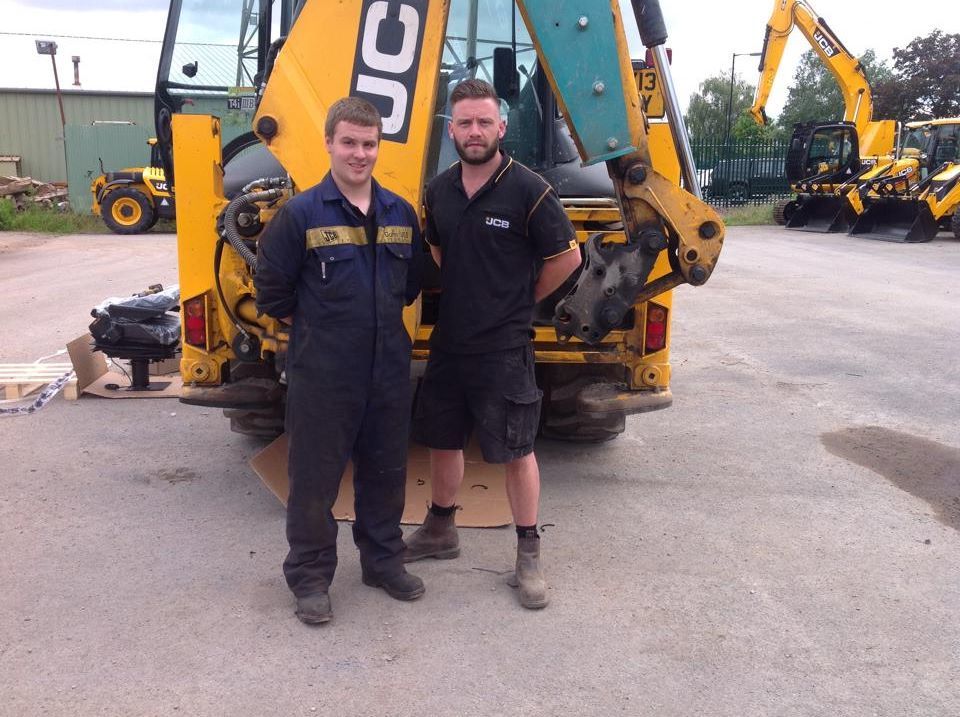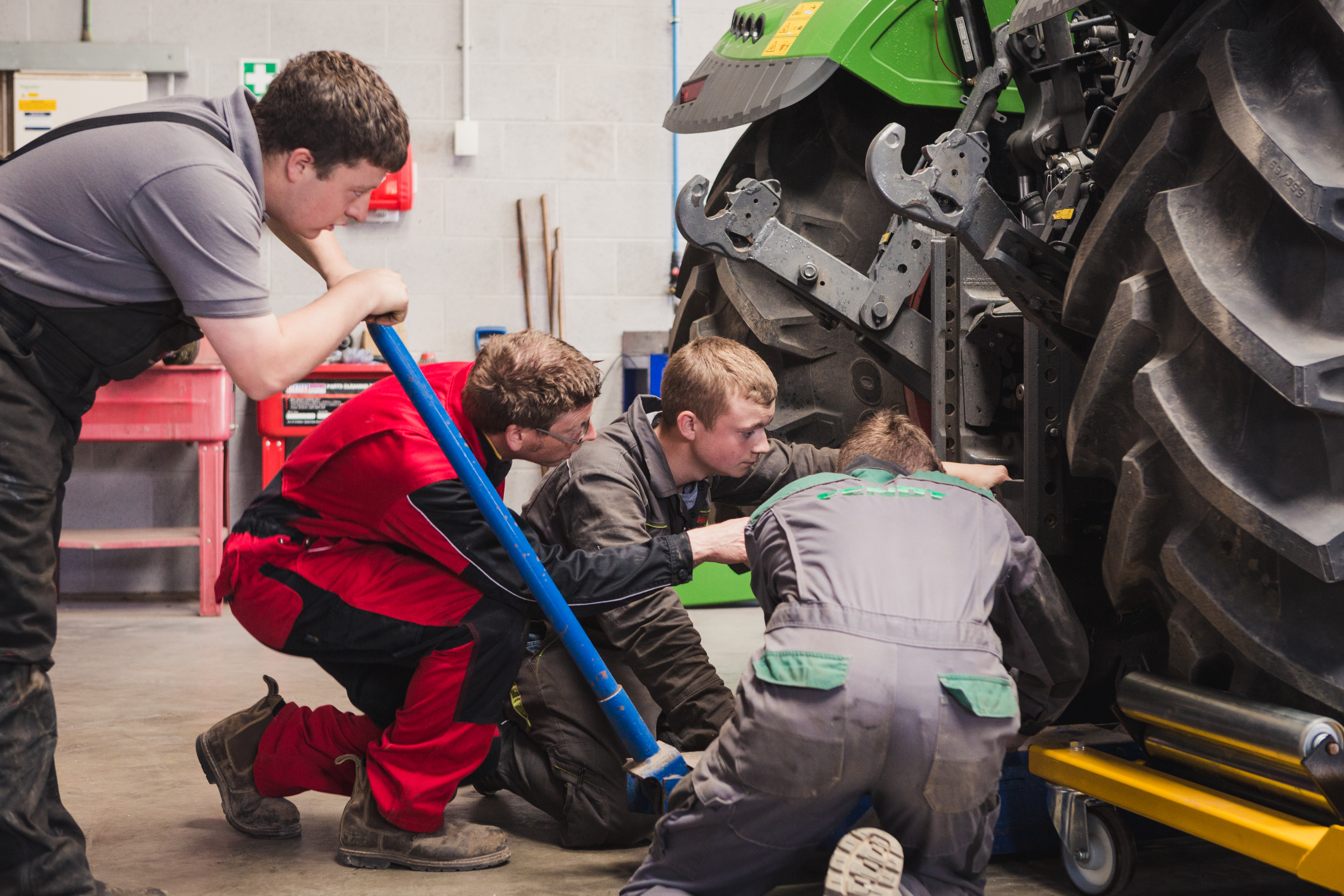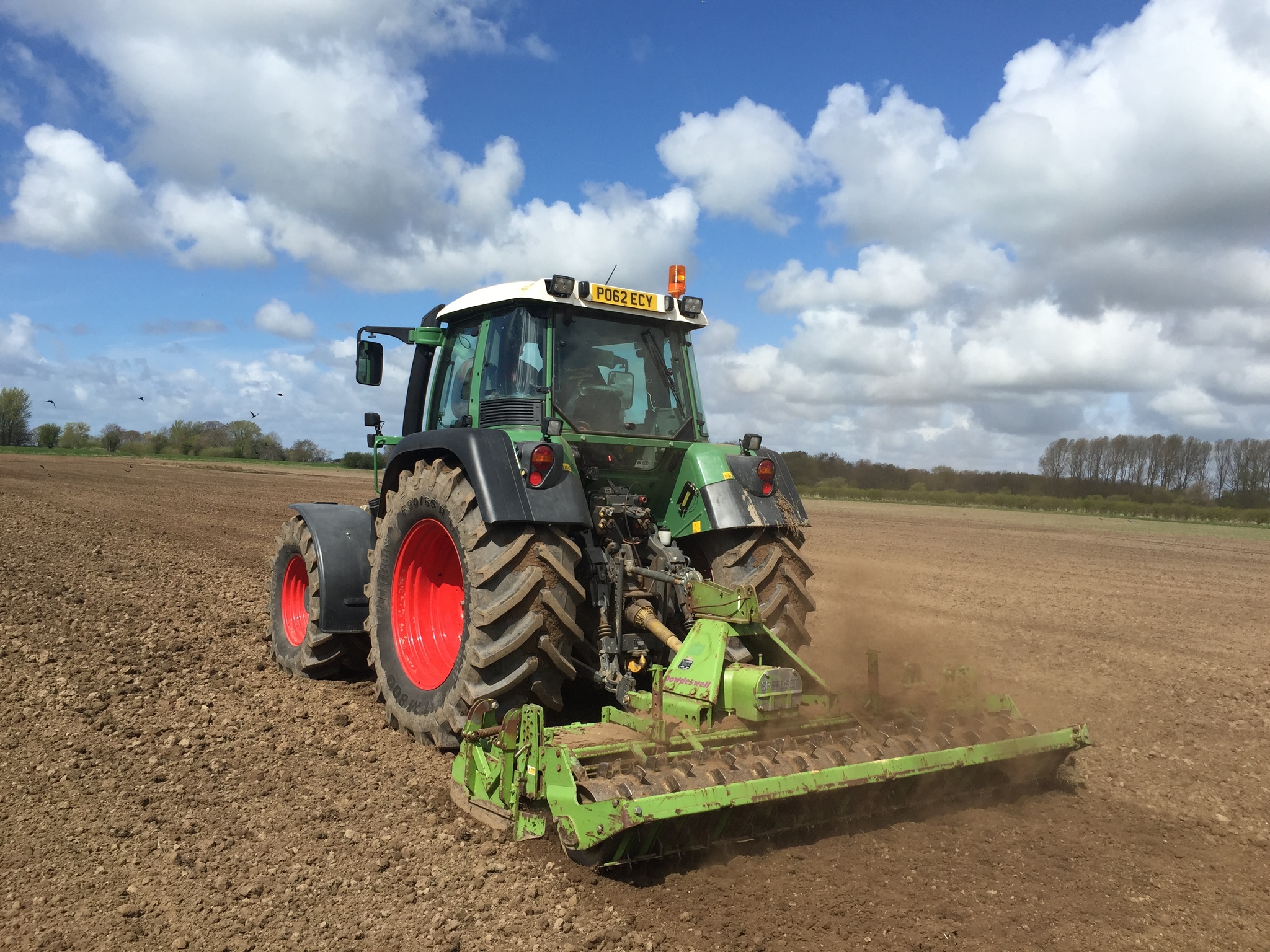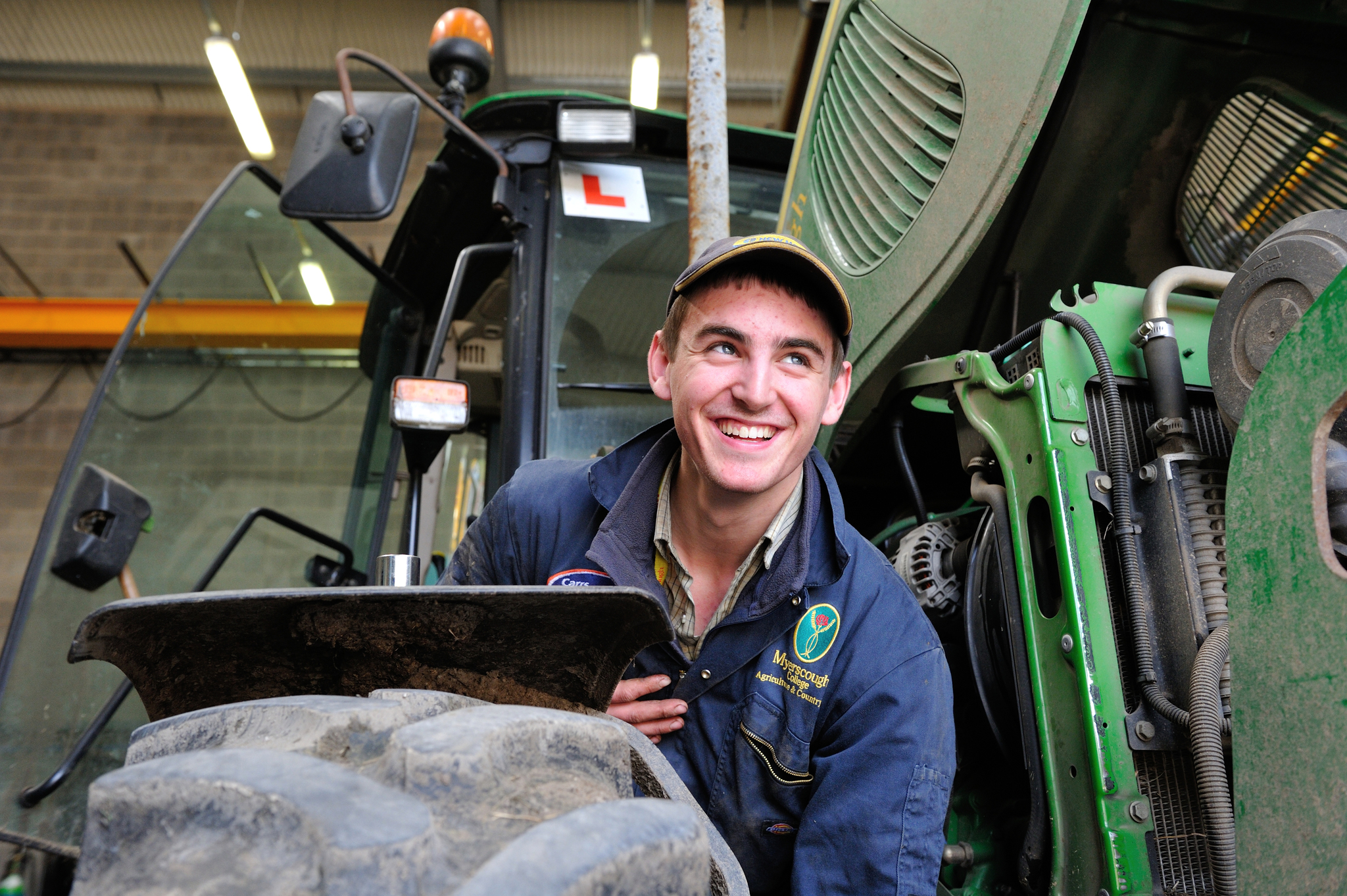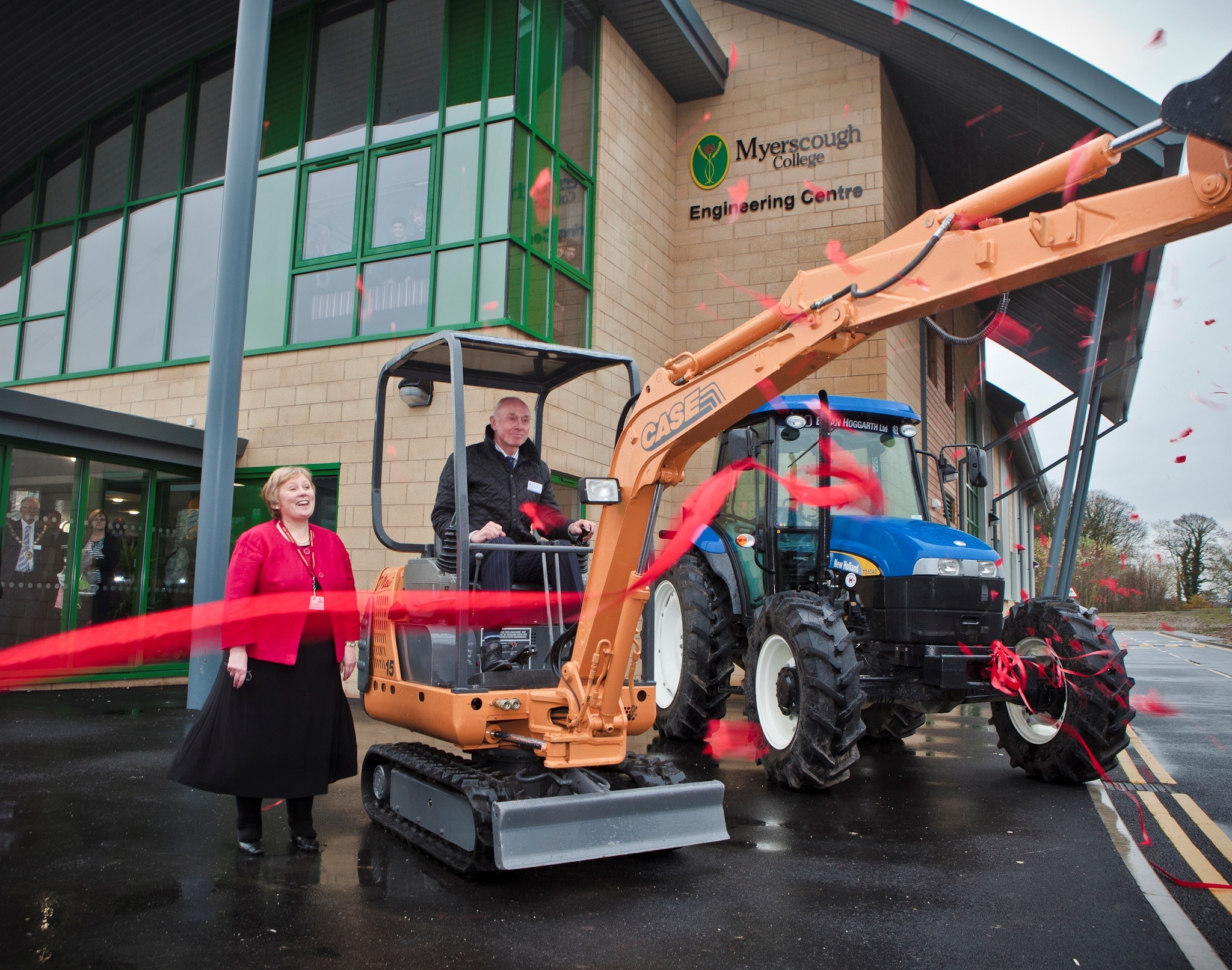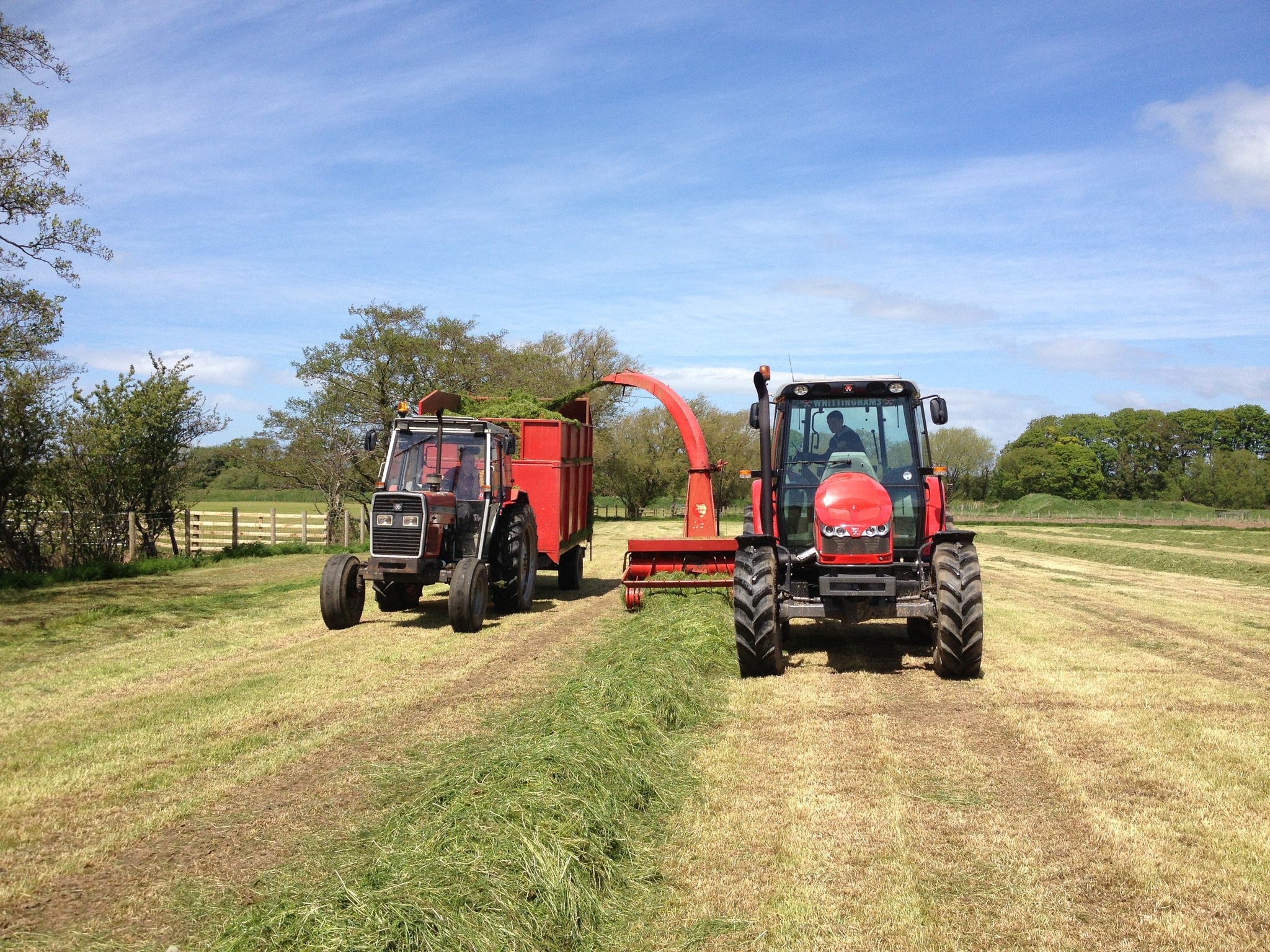Course modules
Diploma
Service and Repair Pneumatics Systems and Components for Land-based Equipment
Learners will develop the practical skills needed to maintain, test and repair pneumatic systems used on land-based vehicles and equipment. They will then focus on the understanding the construction and operation of pneumatic systems used on land-based vehicles and equipment.
Undertaking 4WD Vehicle Maintenance, Operation and Recovery
You will gain an understanding of the operational techniques used in off-road vehicles for traction and stability. This will include vehicle recovery in soft ground.
Working with Land-based Diesel Fuel Injection Systems
This module focuses on the removal, strip down, assembly and testing of conventional fuel injection systems. This includes an introduction to common rail injection system.
Inspect and Test Land-based Machinery and Equipment
To have an understanding of how vehicle faults are found and rectified, based on knowledge gained in other related modules.
Undertake an Investigative Project in the Land-based Sector
You will be asked to invent or modify an existing idea for use in the Land-based industry, to present a portfolio and model to a panel of people currently working in the industry.
Extended Diploma
Subsidiary Diploma
Land-based Engineering Operations - Service and Repair Engines and Components
During this module you will gain an understanding of the principles, maintenance and overhaul of modern internal combustion engines.
Understanding Land-based Vehicle Chassis Systems
This module focuses on transmission, steering, suspension and braking systems.
Service and Repair Hydraulic Systems and Components on Land-based Equipment
Learners will develop the practical skills needed to maintain, test and repair hydraulic systems used on land-based vehicles and equipment. They will then focus on the understanding the construction and operation of hydraulic systems used on land-based vehicles and equipment.
Understanding and Servicing Harvesting Machinery (Cutting and Lifting)
To have an understanding of the working principles of field equipment used in harvesting a selection of crops. This includes use of the equipment in the field.
Understanding and Working with Land-based Vehicle Engine Technology
During this module you will gain an understanding of the principles, maintenance and overhaul of modern internal combustion engines.
Understanding Health, Safety and Welfare in the Land-based Engineering Workplace
This module will develop the understanding and skills needed to apply health and safety in the industry, an essential requirement of all Land-based engineering activities.
Understanding and Servicing Land-based Harvesting Machinery (Processing)
To have an understanding of the working principles of field equipment used in harvesting and processing a selection of crops. This includes use of the equipment in the field.
Entry requirements & additional information
Entry requirements
· Subsidiary Diploma (60 credits in 1 year) /Diploma (120 credits in 2 years) - An English GCSE at C (4) or higher plus a minimum of three others at C (4) or higher, including Maths or Science
Learning and assessment
Students will also receive training and assessment in a large range of additional qualifications, which will enhance their employability such as welding, tractor driving, manual handling and quad bikes (subject to change).
The course incorporates a mix of practicals, classroom lectures, industry visits and case study exercises, including assessment in practicals and written assignments.
Progression
As a course equivalent to A Level the Level 3 Diploma is an ideal spring board for progression to a Foundation Degree or Full Degree depending on UCAS points gained.
Careers
Employment opportunities in Agricultural Engineering and its related industries are currently very good. The Subsidiary, Diploma and Extended Diploma Agricultural Engineering provides the qualification and experience for entry into the industry at a technical level, with future prospects for entry into management.
Special requirements
Costs that are mandatory for the course:
· Pens, pencils, note book etc approx £20
· Clean Myerscough fire retardant overalls and suitable protective footwear (available to purchase from Myerscough College at the beginning of the course). £85
Costs that are optional for the course:
· Trips and visits approx £80
· Although not essential for the course, students may wish to buy recommended books. £20 - £50
· Opportunity to join Car Club. £20 per annum
· Lockers £25 for the year with a refund of £10 on return of the locker key
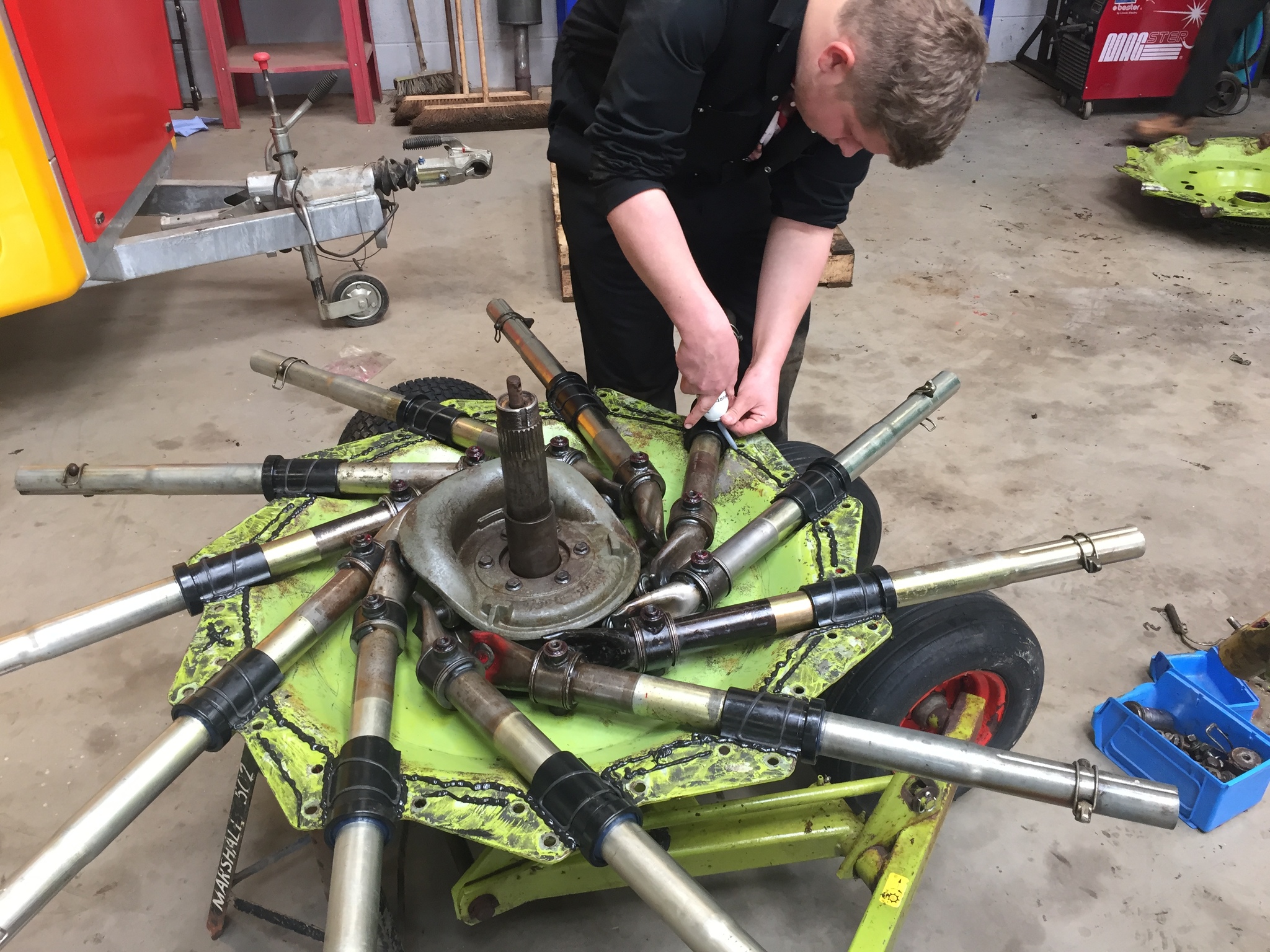

Latest news, Agricultural engineering
-
Open Farm Sunday at Myerscough
- Published
- Thursday 25 April
-
Myerscough welcomes social media influencers to showcase sector-leading agriculture provision
- Published
- Friday 12 April
-
FEATURE: Industry collaboration the key to farming of the future
- Published
- Monday 13 Nov 2023
-
Agricultural engineering students recognised with national awards
- Published
- Monday 22 May 2023
